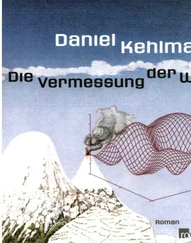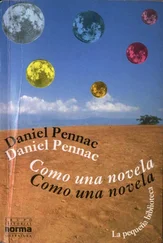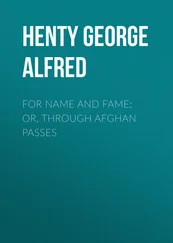“And the children?” Now my voice sounded uncertain. Her saying “you poor thing” to me, just as Luzia said yesterday, hit me with unexpected force.
“Paul insulted his teacher. He’s been difficult recently. You need to talk to him on Saturday.”
“I can’t come home this Saturday. Unfortunately.”
“Oh.”
“Sunday.”
“Fine then, Sunday.”
I said something about appointments, things happening unexpectedly, and the appalling chaos in the office. I said something about a new colleague and incompetent workers. Then I had the feeling I was pushing it too far and I stopped talking.
My crew were waiting for me with the usual anxiety. I knew they hated each other and could understand it, that they hated me was in the nature of things, for I too felt a violent aversion for my boss, one Elmar Schmieding from Wattenwil, but why in the world were they afraid of me? I had never made trouble for anybody, and I didn’t care what they got up to. I know the system and I know that even medium-serious errors don’t cause fundamental upheavals, don’t change anything, simply aren’t important, they irritate this or that client, but we never hear anything about it and they don’t bother us.
So I greeted Schlick and Hauberlan, clapped Smetana on the shoulder, and called a loud “hello” a little emphatically into the room where Lobenmeier and Mollwitz sat opposite each other. Then I sat down at my desk and tried not to think about Luzia. Not about her skin, not about her nose, not about her toes, and absolutely not about her voice. There was a knock, and Mollwitz came in, sweating as usual, struggling under his grotesquely fat body, short, entirely lacking a neck, pathetic.
“Not now!” I said sharply. In a flash he disappeared again. I called Luzia. “Are you free on Saturday?”
“I thought you weren’t in the city on weekends.”
“How’s that?” I got a fright. How did she know that, what had I said to her? “I’m here!”
“Good,” she said. “So Saturday.”
Another knock, Lobenmeier came in to complain he could no longer put up with Mollwitz.
“Not now!”
He could, said Lobenmeier, put up with a great deal. But at a certain point, enough was enough. That he did absolutely nothing, well okay. That he spent his time posting like a maniac on Internet forums, well okay too. One could even get used to him cursing to himself all the time. But his lack of personal hygiene was more, or perhaps less, than could be tolerated in anyone.
“Lobenmeier,” I said gently. “Easy. I’ll talk to him and take care of it.”
I should have reprimanded him for speaking like that about his colleague, but I couldn’t bring myself to do it, the more so since Mollwitz, particularly at the end of the day, really did smell appalling.
On Sunday at around midday I entered my row house in the town by the deep blue lake. Hannah was pale, she had the flu. Paul had shut himself in his room because of some fight, the little one was whining and upset, and I suddenly felt so dizzy it was as if I were drunk. I could still feel Luzia’s hands touching me all over my body.
“Till tomorrow?” she’d asked.
“Of course,” I’d replied without thinking.
I already knew I’d have to invent something to deceive her, but at the same time the lie seemed insignificant; the only things that did signify were this room and this bed and the woman lying next to me, and my other life, Hannah, the children, this house, were like some implausible fiction—just as now, when I sat down at the table after the long drive, pushed a rubber duck to one side, and looked at Hannah’s reddened eyes, Luzia became a distant ghost. I leaned back. The little one stuck her spoon into her mashed potatoes, then smeared the yellow mess all over her face. The phone in my pocket vibrated. A message. Luzia wanted to see me, right away.
“Now what?” asked Hannah. “Not on a Sunday, please.”
“They’re so incompetent,” I said, thumb-clicking: office emergency, colleague, death. I pressed Send and had no sense, to my own amazement, that I’d lied—it was as if I really had left another me back there, who was now setting off to the home of the victim: Hauberlan or Mollwitz? Maybe Mollwitz would be better. I nodded in a preoccupied way and left the room to have a serious talk with Paul. After that I’d send Luzia a message describing how I’d arrived in the dead man’s apartment and forced myself to be calm and make the first arrangements. Not too many specifics, just the main outlines, plus two or three well-observed details: a door half off its hinges, a cat searching vainly for its little bowl of milk, the label on a bottle of pills. How strange that technology has brought us into a world where there are no fixed places anymore. You speak out of nowhere, you can be anywhere, and because nothing can be checked, anything you choose to imagine is, at bottom, true. If no one can prove to me where I am, if I myself am not absolutely certain, where is the court that can adjudicate these things? Real places anchored in space existed before we had little walkie-talkies and wrote letters that arrived in the same second they were dispatched.
Deep in thought, I switched off the phone in case it suddenly rang. No reception, I’d say, it was always plausible; and God knows network outages were always happening, I knew this, it was my job, my expertise. Then I made a fist, banged on Paul’s door, and yelled, “Open Up, Young Man!”
How long can it keep going? I would have said three weeks, maybe a month of danger, freedom, and playing a double game. But the month passed, more weeks went by, and I still wasn’t unmasked.
How did it happen in the old days? How did you lie and deceive, how did you have affairs, how did you get away and manipulate and organize your secret activities without the help of ultra-sophisticated technology? I had lived in those times. Yet I could no longer imagine it.
I sent Hannah messages supposedly emanating from Paris and Madrid, Berlin, Chicago, and even, one memorable day, Caracas: I described air yellow with pollution and streets crawling with cars in a hectically charged paragraph which I composed on my laptop in Luzia’s kitchen while she stood barefoot and in panties in front of the stove and the autumn rain drummed its fingers against the glass. She dropped a cup of coffee, shards exploded all over the floor, the black liquid formed a Rorschach image.
“What are you writing?”
“An audit report for Longrolf.”
And when I told her about poor Longrolf (three children, four wives, alcohol problems, I was now a habitual liar and invented things for no reason at all), I saw myself four days later in my dining room with the little one crawling around on the carpet while Hannah organized holiday photos on the PC which I never used for safety reasons, pictures of the four of us on some overcast beach—having to write Luzia a report on my meeting with the aforesaid Longrolf: the dreariness of the corporate floor, the interoffice intrigues, Longrolf’s look of perpetual malice, and Smetana’s porcine face, the sheer misery of the whole thing and oh my darling I wish I were back with you. After which I’d slip out to the front of the house (“I’m taking out the garbage!”) to prop myself against the wall in the lee of the wind and use my cell phone to call her and tell her how I’d managed to sneak out into the stairwell for a moment just to hear her voice.
A lie? Of course, but hadn’t I truly been thinking about her all the time, wasn’t I eating my heart out with longing to be near her, while I played with the children or had the same old conversation with Hannah about taxes and the water bill and kindergarten and the mortgage, wasn’t I obsessing about her body, her face, and her slightly hoarse voice? What difference did it make whether it was Longrolf who was keeping me away from her or a more or less alienated companion with two noisy children who regarded me as a stranger, and whose existence for as long as I was with them struck me as the product of some confused dream? And conversely, when I locked myself in Luzia’s bathroom to run the taps while I talked to Hannah and then the boy (“That noise? It’s a bad connection!”), my distant family seemed closer and more dear to me than ever, and Luzia out there in bed a sudden weighty encumbrance like the Congress I’d just claimed to be attending on the phone. I loved them both! And most of all I always loved the one I wasn’t with at that moment, the one I couldn’t be with, from whom the other one was keeping me separate.
Читать дальше












